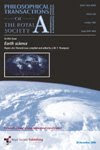There are more questions than answers in this post, sorry.
My friends and colleagues at MW-Materials World have pointed once more to good approaches and co-operation between Geologists in the EU and in China to fully determine sites suitable for CO2 storage and sequestration: Capturing carbon dioxide in China by MW's reporter R. Mehta.
Perhaps as any good interview should MW's R. Mehta report, raises more questions for comment and debate than answers. The conversation between MW's R. Mehta and Mike Stephenson appears to be good news, and it most certainly is. However I deliberately chose the word storage as opposed to sequestration,favoured perhaps by those concerned with geological time scales. Don't get me wrong, experience in high reliability energy materials (aero-engine, nuclear, petrochem..) strongly recommends aiming for the highest standards, the imponderables of practise can lead to a somewhat lower standards. On the other hand, I believe that engineers and policy makers, not to mention the now GW-GHG sensitive, general public would like estimates, orders of magnitudes, of what "significant onshore storage" means and better we would all appreciate hard facts and best "state of the art" decisions. I recently heard that two French Parliamentarians (independently of political bias) already consider, that globally, there are insufficient suitable CO2 storage-sequestration site (I'll check political quotes). They hope to lead a CO2 users "Lobby". I would expect that the French Deputies have consulted our colleagues at BRGM-France's Geological and Mining Research Authority. That being said the fact that BGS_EU-China are concerned with energy generation is also good news. My scant blogged Venn diagramme: 1. Mining, 2. Power Generation, 3. Materials focused on CO2 sequestration (practice) and many IOM3-Maney online publications still indicates that CO2 storage and sequestration is the weak-link in in-situ global main power generation processes(ie. fossil fuel based). I would be pleased of any reaction and further information following this report, interview and conversation. Finally it is good news that the main new main CO2 emitter over-taking USA, (I believe) is getting involved and accepts assistance.
Links are provided on MW's Environment and Sustainability page5, March 2009 .
Further Reading:
1.EU-China CO2-coach programme
2.NZEC
3. BSG-British Geological Survey's Nascent Site
4. EU Scientific Authority for CO2 storage pdf. News Release 16 March2009. and direct link to the site CO2 GeoNet







